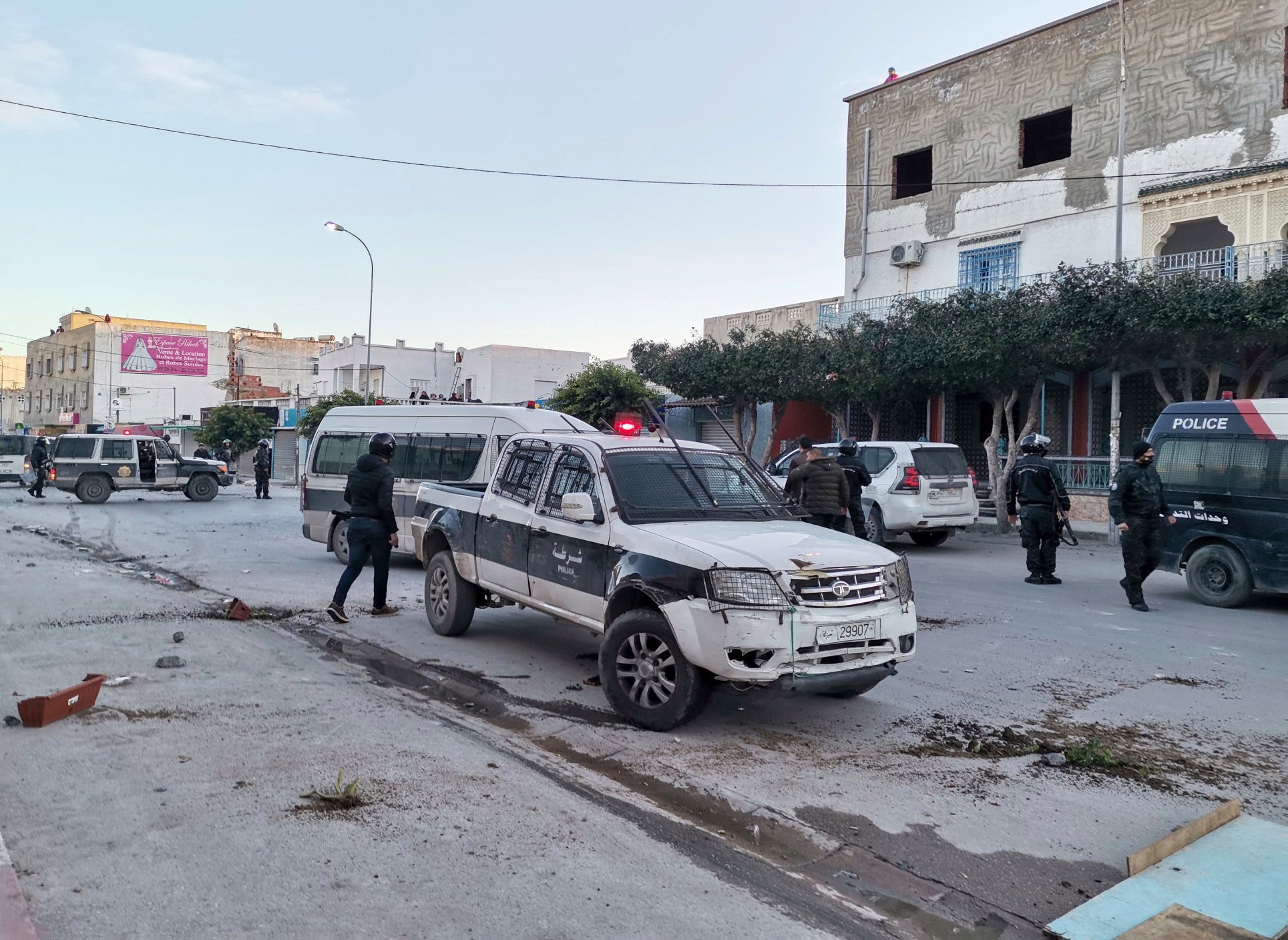Tunisian army units, police quell unrest in many areas
Tunisia’s defense ministry says army units deployed overnight and police have quelled days-long social unrest that saw violent protests by young people in various cities across the North African country

Your support helps us to tell the story
From reproductive rights to climate change to Big Tech, The Independent is on the ground when the story is developing. Whether it's investigating the financials of Elon Musk's pro-Trump PAC or producing our latest documentary, 'The A Word', which shines a light on the American women fighting for reproductive rights, we know how important it is to parse out the facts from the messaging.
At such a critical moment in US history, we need reporters on the ground. Your donation allows us to keep sending journalists to speak to both sides of the story.
The Independent is trusted by Americans across the entire political spectrum. And unlike many other quality news outlets, we choose not to lock Americans out of our reporting and analysis with paywalls. We believe quality journalism should be available to everyone, paid for by those who can afford it.
Your support makes all the difference.Tunisia s defense ministry said Monday that army units deployed overnight and police have quelled days-long social unrest that saw violent protests by young people in various cities across the North African country
The ministry said military units were called in on Sunday night to protect public buildings and “seats of sovereignty,” and the situation was “calm” Monday.
Tunisians are angry at the state of the economy and of public services. Many feel disappointed that on the 10th anniversary of the uprising that ousted the autocratic former president, Zine El Abidine Ben Ali, little seems to have improved. There is also added frustration over coronavirus restrictions.
The defense ministry said the army will conduct joint patrols with security forces in the regions of Siliana, Kasserine, Sousse and Bizerte, where clashes with police broke out Sunday evening for the second consecutive night.
The interior ministry said authorities had made 630 arrests linked to the violence on Sunday alone.
According to local media the outbreak of violence spread to other parts of the northeast, in particular Nabeul and the south, including the region of Kebili where demonstrators looted shops and threw stones and Molotov cocktails at official buildings in some places.
Tunisia on Thursday commemorated the 10th anniversary since the flight into exile of iron-fisted Ben Ali, after a popular revolt that foreshadowed pro-democracy uprisings, strife and civil war in the region during what became known as the Arab Spring.
But a pall of disenchantment still hangs over Tunisia, marked by extremist attacks, political infighting, a troubled economy and unfulfilled promises, including development of the interior.
Despite numerous democratic elections, protests break out, especially in the central and southern regions where youth joblessness reaches 30% and the poverty level is above 20%.
According to the Tunisian Forum of Economic and Social Rights, more than 1,000 demonstrations took place in November alone. Months of sit-ins paralyzed production of oil and phosphate, a key resource, for months, costing billions of dollars in lost state revenues.